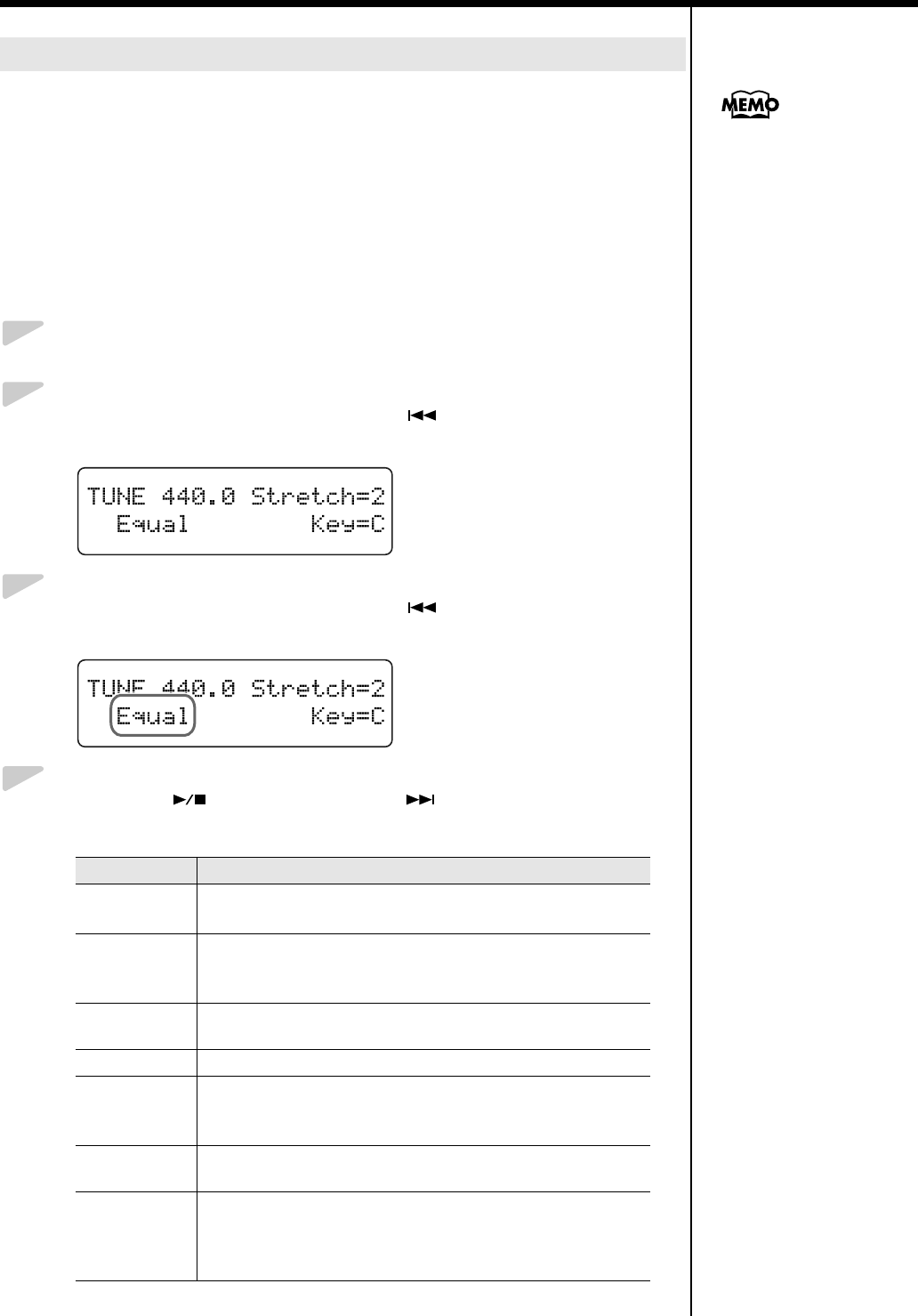
32
Performance
You can play classical styles such as Baroque using historic temperaments
(tuning methods).
Most modern songs are composed for and played in equal temperament, the
most common tuning in use today. But at one time, there were a wide
variety of other tuning systems in existence.
By playing in the temperament that was in use when a composition was
created, you can experience the sonorities of chords originally intended for
that song.
1
Press the [Function] (Exit) button, getting its indicator to light.
2
Press the [Song] (Select -) button or [ ] (Select +) button to
display the TUNE screen.
fig.03-200d
3
Press the [Song] (Select -) button or [ ] (Select +) button to get
the Temperament setting to flash.
fig.03-250d
4
Press the [ ] (Value -) button or [ ] (Value +) button to
select the temperament.
Changing the Tuning
Display
Qualities
Equal
This temperament divides the octave into 12 equal parts.
All intervals will be slightly out of tune by the same amount.
Just Major
This temperament makes the 5th and 3rd intervals pure.
It is unsuitable for playing melodies and modulation is not pos-
sible, but it produces beautifully harmonious chords.
Just Minor
Just intonation differs between major and minor keys. The
same results as major can be obtained in a minor key.
Arabic
This tuning is suitable for the music of Arabia.
Kirnberger
This temperament is a modification of meantone temperament
and just intonation, allowing more freedom of modulation.
It allows you to play in all keys (third method).
Meantone
This temperament is a partial compromise of just intonation in
order to allow modulation.
Pythagorean
This temperament is based on the theories of the Greek philos-
opher Pythagoras, and has pure fourths and fifths.
Chords containing a third will sound impure, but melodies will
sound good.
You can save this setting in
the RG-1’s memory using the
Memory Backup function
(p. 71).
RG-1_e.book 32 ページ 2008年4月8日 火曜日 午後2時36分


















